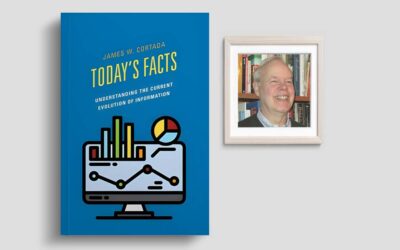Secondary Research in Libraries
Lauren Hays
Secondary research is a type of research method that involves gathering data from existing sources. Often the purpose users have for engaging with library resources is to conduct secondary research.
While our users may not be engaging in formal secondary research where they are engaged in a study with a methodology and reviewing existing literature in order to answer research questions, they are still reading existing literature to learn about a topic and possibly make a decision.
Despite the fact that our patrons are not often not engaging in formal secondary research, I do still think there is value in knowing the different types of secondary research in order to understand the purposes of why your users may be collecting data. Types of secondary research include:
- Systematic review: “… aim(s) to identify, evaluate, and summarize the findings of all relevant individual studies over a health-related issue, thereby making the available evidence more accessible to decision makers” (Ganeshkumar & Gopalakrishnan, 2013).
- Meta-analysis: “Meta-analysis is a quantitative, formal, epidemiological study design used to systematically assess previous research studies to derive conclusions about that body of research” (Haidich, 2010)
- Scoping review: “is a form of knowledge synthesis that addresses an exploratory research question aimed at mapping key concepts, types of evidence, and gaps in research related to a defined area or field by systematically searching, selecting, and synthesizing existing knowledge” (Colquhoun et al., 2014).
- Narrative review: “synthesizes primary studies and explores this through description rather than statistics” (University of Wollongong Australia, 2022).
- Integrative review: “summarizes past empirical or theoretical literature to provide a more comprehensive understanding of a particular phenomenon or healthcare problem (Broome 1993). Integrative reviews, thus, have the potential to build nursing science, informing research, practice, and policy initiatives. The integrative review method…allows for the inclusion of diverse methodologies (i.e. experimental and non-experimental research)” (Whittemore & Knafl, 2005).”
- Literature review: “is a comprehensive, critical and objective analysis of the current knowledge on a topic.” (Iowa State University Library, 2022).
I believe that viewing the work of our users as secondary research can change the way we interact with patrons. One example is that if a library user is asking to gather data on a health topic to make an informed decision, it is equally important that they understand basic research methods in order to make sense of the research they read. Due to this, I think understanding users’ needs and purposes is vital. This connects closely to what many of us likely learned about in library school—the reference interview. Many of us may not engage in formal reference interviews, but taking time to understand the needs and purposes of the library user can help ensure they receive the necessary information.
Additionally, having resources that explain information such as guides on …
- Research methods
- Information architecture
- Information landscapes
- How information is disseminated
- The peer review process
- The editorial process
- Fact-checking
- Search algorithms
can help library users make sense of the information they gather and read.
In sum, knowing the reasons our users are asking for information and then providing information to help them make sense of the data are crucial aspects of our jobs. Finding ways to strengthen both tasks is important work.
References
Colquhoun, H. L., Levac, D., O’Brien, K. K., Straus, S., Tricco, A. C., Perrier, L., … & Moher, D. (2014). Scoping reviews: time for clarity in definition, methods, and reporting. Journal of clinical epidemiology, 67(12), 1291-1294.
Gopalakrishnan, S., & Ganeshkumar, P. (2013). Systematic reviews and meta-analysis: understanding the best evidence in primary healthcare. Journal of family medicine and primary care, 2(1), 9.
Haidich, A. B. (2010). Meta-analysis in medical research. Hippokratia, 14(Suppl 1), 29.
Iowa State University Library. (2022). How to conduct a literature review: A guide for graduate students. Iowa State University. https://instr.iastate.libguides.com/c.php?g=885773&p=6372981
University of Wollongong Australia. (2022). Five over types of systematic reviews. https://uow.libguides.com/systematic-review/types-of-systematic-reviews
Whittemore, R., & Knafl, K. (2005). The integrative review: updated methodology. Journal of advanced nursing, 52(5), 546-553.
Lauren Hays
Lauren Hays, PhD, is an Assistant Professor of Instructional Technology at the University of Central Missouri, and a frequent speaker on topics related to libraries and librarianship. Her professional interests include information literacy, educational technology, library and information science education, teacher identity, and academic development. Please read Lauren’s other posts about skills for special librarians. And take a look at Lucidea’s powerful integrated library systems, SydneyEnterprise, and GeniePlus, used daily by innovative special librarians in libraries of all types, sizes and budgets
Never miss another post. Subscribe today!
Similar Posts
The Importance of Professional Networking: Tips for Special Librarians
For many special librarians, the idea of professional networking can feel daunting, especially for those who thrive in quiet, research-driven environments. Lauren Hays shares her journey from reluctant networker to engaged community member, offering practical tips to help you build authentic professional relationships that benefit both you and your field.
Interview with the Author: Jim Cortada on Today’s Facts and the Evolution of Information
Dr. James Cortada, historian and senior research fellow at the Charles Babbage Institute, explores the history of information in his forthcoming book. By examining how information has been created, organized, and used over time, Cortada reveals patterns that continue to shape modern librarianship and knowledge management.
The Complicated Feelings Librarians May Have About AI
GenAI will affect how we do our work and the type(s) of work we engage in. In navigating the transformative potential of GenAI, we should engage in reflective practice that centers on our core professional values.
Recommended AI Literacy Frameworks for Special Librarians
These frameworks provide insights and approaches to help you determine the best ways to address build and promote AI literacy in your specific context.




Leave a Comment
Comments are reviewed and must adhere to our comments policy.
0 Comments